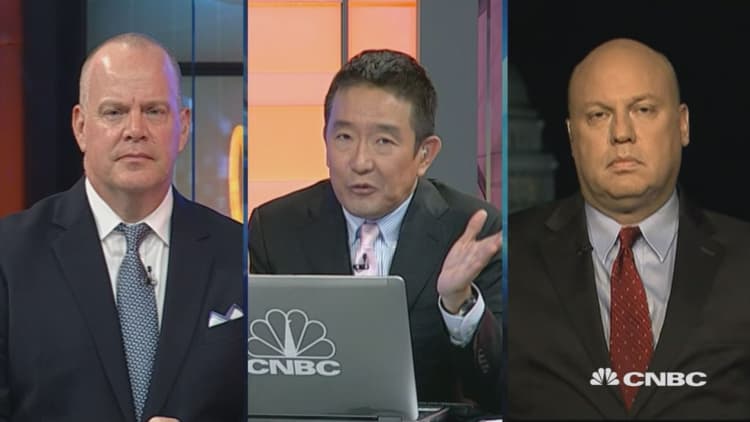
The U.S. and China may fall into a "cycle of retaliation" next year after president-elect Donald Trump's inauguration as he takes action on trade against the world's second largest economy, an economist said on Wednesday.
Speaking to CNBC's Squawk Box, China Beige Book's chief economist Derek Scissors said he wasn't ruling out Trump getting tough on China fast after inauguration on Jan. 20, but his administration may start with something less radical, such as steel tariffs.
"But then China retaliates. Then the Trump people don't like that and they retaliate, and we get a spiral," he said.
Trump didn't run this campaign to do nothing about China trade.Derek ScissorsChina Beige Book chief economist
While it requires "wisdom on both sides of the Pacific" to avoid an outright trade war, the U.S. would no doubt "do something."
"Then we have the question: in a year where there's going to be a Communist Party Congress, how does China respond? Do they keep themselves under control?" Scissors asked. The previous congress was held in 2012.
On a macroeconomic level, on-going broad weak macroeconomic performance will continue to be an issue for China.
He doesn't think China will devalue its currency as it will spur capital outflow and provoke China's trading partners.
While higher oil prices will not be a positive for the major oil importer, overall sentiment will be lifted on steady oil prices even with prices gains at 3-4 percent, as this will be "much less scary" than the sustained producer deflation that has plagued the energy markets since the summer of 2014, he said.

